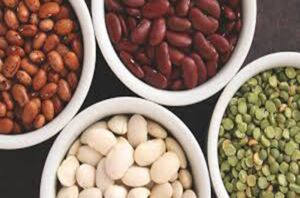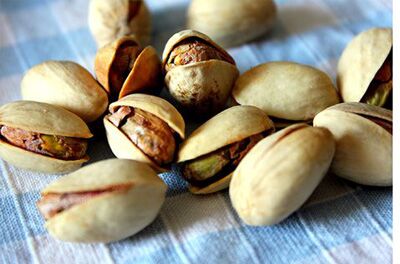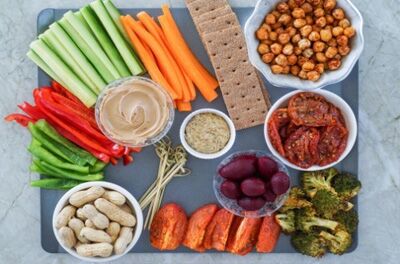“I’m so hungry I can eat a horse!”
“I’m so hungry I can’t concentrate!”
“My God, is it Lunch-Time yet?”
We have all felt it! We have all said it, whether we are “Dieting” or not. When we feel this, our first thought is eating. We’ve all experienced that gnawing, painful feeling in our stomach, somewhere in the upper left side of our abdomen. These are commonly known as hunger pangs. Hunger pangs, or hunger pains, are caused by strong contractions of the stomach when it’s empty. This uncomfortable sensation is often accompanied by the desire to eat.
When dieting, or changing your eating habits, this can happen quite often. Changing your dining habits to a healthy eating lifestyle is a slow process. Your body has to get used to the new eating regimen. Mentally, you are adopting a new healthier way of approaching your food choices, and this also takes getting used to. Our body gets used to a level of energy through our nutrition. When we diet, we usually eat less food. While the number on the scale moves downward, the brain is secretly trying to force energy intake back to its original level. Our brain, thinking our body is starving, go into conservation mode. “You must be hungry!” is its message.
You will also deal with being hungry from time to time and this is normal. The brain is telling your stomach that it needs more fuel. Remember your brain, your heart, your lungs run 24 hours a day 7 days a week non-stop. Not to mention the other systems in your body that are always running, but you shouldn’t always feel as if you are starving. This will just set you up for failure. Fortunately, you don’t have to cheat on your diet when those hunger pains hit. You can overcome being hungry when you are dieting in several ways.
1. Opt for Fiber-Rich Foods

According to Healthline.com a high fiber intake stretches the stomach, slows its emptying rate, and influences the release of fullness hormones. In addition, fiber can ferment in the bowel. This produces short-chain fatty acids thought to further help promote feelings of fullness (7, 8).
They further state in fact, a recent review reports that adding fiber-rich beans, chickpeas, and lentils to your meal can increase feelings of fullness by 31%, compared to equivalent meals that aren’t based on beans. Fiber-rich whole grains can also help reduce hunger and keep you feeling full. Eating an extra 14 grams of fiber each day may decrease your calorie intake by up to 10%.
What’s more, few negative effects have been linked to high-fiber diets. Fiber-rich foods often contain many other beneficial nutrients, including vitamins, minerals, antioxidants, and helpful plant compounds Therefore, opting for a diet containing sufficient fruits, vegetables, beans, nuts, and seeds can also promote long-term health.
Fill Up On Water

According to Healthline, people who drink two glasses of water immediately before a meal eat 22% less than those who don’t drink any water Scientists believe that about 17 oz (500 ml) of water is sufficient to stretch the stomach enough to send signals of fullness to the brain. That said, water is also known to empty from the stomach quickly. For this tip to work, it may be best to drink the water as close to the meal as possible.
Interestingly, Healthline reports Coffee has many benefits for health and sports performance and may also help decrease your appetite. According to them, research shows that coffee increases the release of peptide YY (PYY). This hormone is produced in the stomach in response to eating and promotes a feeling of fullness. Scientists believe that PYY levels play an important role in determining how much you’re likely to eat. Interestingly, decaffeinated coffee may produce the highest reduction in hunger, with effects that last up to three hours after consumption.
Try Eating Pistachios

According to Prevention Magazine In 2012, U.S. Agricultural Research Service food scientist David J. Baer, Ph.D., found that pistachios had about 6% fewer calories than everyone once thought, putting them at 160 calories an ounce. That’s the lowest calorie count of any nut, says Baer. The reason? The body has trouble digesting the fat in this nut. In other words, you get to taste the fat when you eat pistachios but you don’t digest it. It’s perfect. diet food, as tasting that fat will help tame your hunger. There’s another advantage, as well: Pistachios weigh less than other nuts, which means that you can eat more for the same amount of calories. An ounce of walnuts gives you about 14 halves; an ounce of almonds is 23 nuts. But an ounce of pistachios gives you 43 nuts. And since pulling apart the shells slows down your snacking pace, your gut has time to register that it’s getting the sustenance it needs. Keep a snack-size baggy on hand for those times your stomach begins to growl.
Watch your Sugar intake

Sugar’s aliases are corn syrup, high-fructose corn syrup, brown sugar, honey, maltose, corn sweeteners, and dextrose. Don’t eat simple sugary foods alone — ensure they are mixed with a meal to help control your hunger. Richards J. Johnson, M.D., of the University of Florida showed in his research that communication between the digestive tract and the brain’s fullness center was disrupted by high-fructose corn syrup, making appetite control difficult.
There is another thought about curbing hunger pangs called Volumetrics or high volume eating. It’s a fascinating concept and we will provide a link to the guest website below where you can read more about it. Here is a snippet for perusal.
“If you understand the basic principles of fat and weight loss, you know you need to be in some kind of caloric deficit to successfully lose fat or lose weight. Unfortunately, being in a caloric deficit usually means being hungry at some point, and no one really wants to feel hungry. After all, it’s one of our basic instincts to eat when we are hungry, right? One of the main reasons diets fail is because hunger is uncomfortable, and eventually we cave and eat beyond our required calorie allowance. Are there foods that help reduce hunger? Read on to learn foods that help reduce hunger when dieting.
What if there was a way that you could eat in a caloric deficit and be less hungry? Volume eating may just be the answer for which you were looking. Let’s take a closer look at what is volume eating and how it can help you stay satisfied even when eating fewer calories.
Additionally here are some hunger quenching tips to follow:
From our friends at Healthline.com Hunger pangs can be especially difficult to deal with when you’re trying to follow a new healthy eating regimen. Here are some ways to alleviate your hunger pangs so you can stay on track with your health goals.
- Try eating smaller, more frequent meals. Your total caloric intake, not your meal frequency, is what affects weight loss or gain. Eating smaller portions more frequently throughout the day can help reduce uncomfortable feelings of hunger.
- Make sure you’re eating a nutrient-dense diet. Eating more lean protein, whole grains, legumes, fruits, and vegetables will give your body the nutrition it requires, which can help prevent hunger pangs.
- Eating higher volume foods (think green leafy vegetables or foods high in water content like soup) and foods high in fiber can help you feel full for a longer period of time.
- Get enough sleep. A good night’s sleep helps keep in balance the hormones that influence your feelings of hunger and fullness.
- Focusing on enjoying your meal as you eat it. Intentionally remembering the food you’ve eaten each day may help reduce feelings of hunger.
- Distraction can help Try reading, talking with a friend, working on a project that interests you, putting on loud music, brushing your teeth, taking a walk, or visualizing your health goals.
- Eat Lean Proteins. Protein acts as an appetite suppressant to help control hunger pangs. Eating two to three ounces of protein triggered a 25 percent spike in energy, increasing fat metabolism 32 percent, and lasting up to four hours, in research conducted by the University of Wollongong in Australia.
- Eat Slowly: A 2009 study published in the Journal of Clinical Endocrinology & Metabolism found that eating slowly results in a greater sense of fullness, reducing the intensity of hunger pangs.
Get Support From Others

When you are dieting, it’s easy to feel alone. You may not realize that many people are struggling with their weight. You may be used to turning to food for comfort and don’t even realize it.
One of the ways to get through being hungry when you are dieting is to get support from others. Call a trusted friend or family member and let them know you are struggling. You might find that they have been in a similar place as you have. They can offer you advice, or they can be the listening ear that you need. Remember, you are not alone. We have all faced struggles when dieting. Trying to overcome hunger is a hurdle. However, with the proper support, you can get through it and become one step closer to reaching your weight loss goals.
Eat A Light Snack

There will be times when you simply have to address getting rid of hunger pains. In those instances, you should eat a light snack. You can find something that won’t totally wreck your diet. If you are looking for a way to avoid hunger pangs in between meals, opt for whole grains, lean protein, and fresh fruits and vegetables. Just make sure that you don’t overdo it. Stick to something small that doesn’t have a lot of calories. Also, don’t make it a habit to snack every time that you feel hungry. It’s important to know when you actually have something to eat, and when your body isn’t actually hungry.
In conclusion, many of us deal with hunger when we are dieting. Often times there really is no reason for it. Fortunately, there are numerous ways to deal with the temptation to cave in and eat something you shouldn’t. By utilizing the above tips, you can overcome being hungry by dieting. You may have to try a couple of different things in order to avoid the urge to eat. However, it will be worth it in order to not give in to temptation, and stay on top of your weight loss goals. Don’t forget that we all slip up from time to time. Try not to be too hard on yourself if you give in to temptation once or twice when you are dieting. If you are looking for even more helpful tips, sign up for this ebook. It will help you to not only deal with overcoming hunger but sticking to your diet as well.

